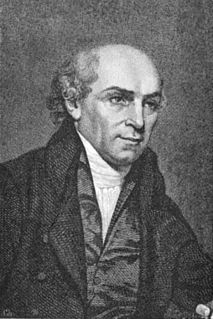A Quote by D.T. Suzuki
Zen has nothing to teach us in the way of intellectual analysis; nor has it any set doctrines which are imposed on its followers for acceptance.
Related Quotes
You don't have any other society where the educated classes are so effectively indoctrinated and controlled by a subtle propaganda system - a private system including media, intellectual opinion forming magazines and the participation of the most highly educated sections of the population. Such people ought to be referred to as "Commissars - for that is what their essential function is - to set up and maintain a system of doctrines and beliefs which will undermine independent thought and prevent a proper understanding and analysis of national and global institutions, issues, and policies".
Nothing can separate you from His love, absolutely nothing, neither death nor life, nor angels, nor principalities, nor powers, nor things present, nor things to come, nor height, nor depth, nor any other creature... We do not need to beg Him to bless us, He simply cannot help it. Therefore God is enough! God is enough for time, God is enough for eternity. God is enough!
Fear destroys intimacy. It distances us from each other; or makes us cling to each other, which is the death of freedom.... Only love can create intimacy, and freedom too, for when all hearts are one, nothing else has to be one--neither clothes nor age; neither sex nor sexual preference; race nor mind-set.
The stigmatized individual is asked to act so as to imply neither that his burden is heavy nor that bearing it has made him different from us; at the same time he must keep himself at that remove from us which assures our painlessly being able to confirm this belief about him. Put differently, he is advised to reciprocate naturally with an acceptance of himself and us, an acceptance of him that we have not quite extended to him in the first place. A PHANTOM ACCEPTANCE is thus allowed to provide the base for a PHANTOM NORMALCY.
Not many of us will be leaders; and even those who are leaders must also be followers much of the time. This is the crucial role. Followers judge leaders. Only if the leaders pass that test do they have any impact. The potential followers, if their judgment is poor, have judged themselves. If the leader takes his or her followers to the goal, to great achievements, it is because the followers were capable of that kind of response.
Zen is the enemy of analysis, the friend of intuition. The Zen artist understands the ends of his art intuitively, and the last thing he would do is create categories; the avowed purpose of Zen is to eliminate categories! The true Zen-man holds to the old Taoist proverb,
Those who know do not speak. Those who speak do not know.
Those who would be employed in propagating the Gospel should be familiar with the doctrines he is to combat and the doctrines he is to teach, and acquire a complete knowledge both of the Sacred Scriptures and of these philosophical and mythological dogmas which form the souls of the Buddhist and Hindu Systems.
Man cannot be enlightened through any organization, creed, dogma, priest or ritual, nor through any philosophical knowledge or psychological technique. He has to find it through understanding the contents of his own mind, through observation, not through intellectual analysis or introspective dissection.






























